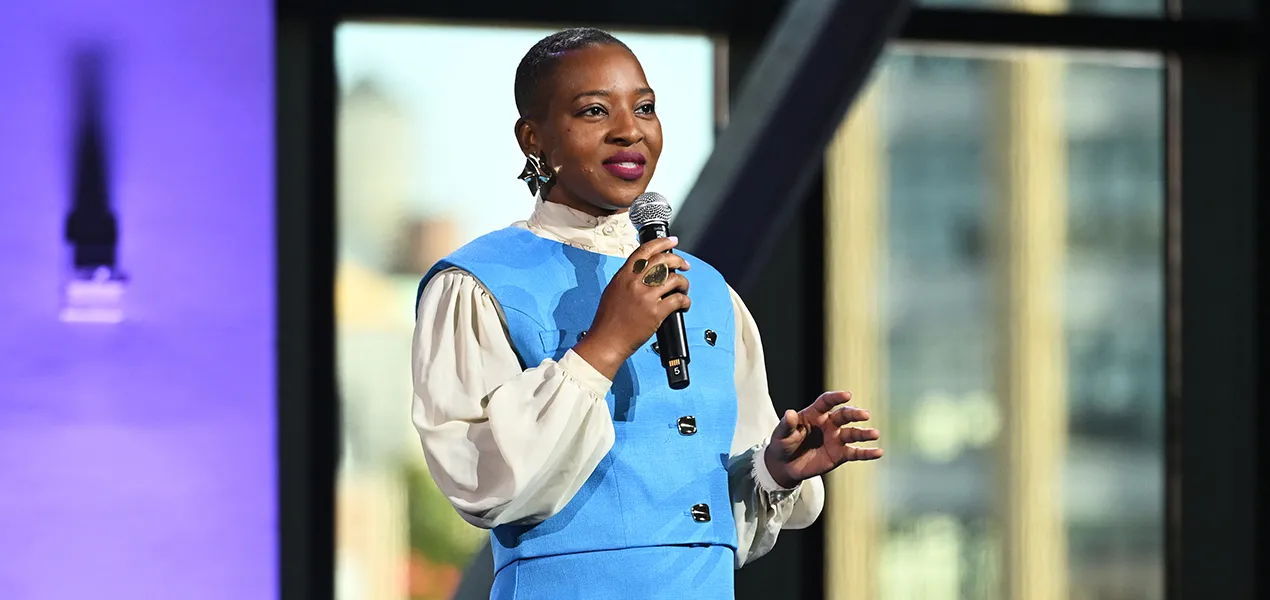Three Ways We Can Work Together to Improve Women’s Health

Hologic joined advocates and changemakers at an event hosted by nonprofit organization Global Citizen to call for urgent action on women’s health.
World leaders, artists, policymakers and advocates gathered in New York City in April 2025 with one goal: to turn ideas into action to build a more equitable, just and healthy world. Hologic was proud to stand among them, amplifying a message central to our mission: Better health for women is possible, but only if we work together.
The data tell a story of urgency
Women’s health is not a side issue; it is foundational to sustainable development and eliminating poverty. That was one of the messages shared by Mia Keeys, Hologic’s Director of Global Health and Innovation, in her remarks at the event, drawing on findings from the Global Women’s Health Index.
Underscoring the state of women’s health worldwide, data from the Index make one thing clear: Women’s health is in crisis. One in four women say health problems affect their daily lives. Emotional well-being is also an area of concern, with more women reporting feelings of worry, sadness and insecurity than ever before. Meanwhile, economic stress continues to impact health, with over one-third of women saying they had difficulty affording food last year.
Preventive care also remains a critical gap, the Index shows. Only 10% of women globally say they were screened for any type of cancer, even though millions of women are diagnosed with cancer each year. Access to sexual and reproductive healthcare is also waning in some regions, reinforcing the importance of safeguarding these crucial services.
According to Keeys, these troubling data present a powerful opportunity, which she summarized in three key actions:
1. Re-center women and girls in decision-making when it comes to women’s health and policies.
2. Invest in research and database solutions that will improve women’s access to healthcare worldwide.
3. Address the underlying structural factors that affect health outcomes for women, including poverty and systemic inequity.
“When women and girls don’t have access to healthcare, we can’t make meaningful progress on ending poverty because health impacts every other area of a woman’s life,” said Keeys.
The women behind the data
Behind every statistic is a woman with a story. On stage, Keeys shared the experience of Champa Devi, a mother in India who depends on her local clinic to stay healthy and support her family. “If I am healthy, I can go anywhere, do anything, take care of anyone,” said Devi. “If there is no place to go and if the health is not good, then we will not be able to do anything.”
The Index is rooted in the voices of women like Devi who are living the realities behind the numbers. These women are not only recipients of care; they are agents of change who must be included in the conversations shaping global health.
The power of partnerships
As Keeys emphasized on stage, closing the gender health gap is not just a moral imperative; it’s an economic one. Healthier women power healthier economies. In fact, closing the gap could add $1 trillion to the global economy annually by 2040. Every dollar spent on family planning yields $120 in health and economic returns.
Collaborative events like Global Citizen NOW remind us that no single organization, sector or government can close the gender health gap alone. At Hologic, we look for opportunities to combine our expertise in diagnostics and health innovation with the activism and advocacy of partners like Global Citizen to raise awareness and advance policies that make a tangible difference in the lives of women around the world.
“Change starts at home.”
Keeys concluded her remarks with a personal and powerful challenge: Talk to the women in your life about preventive care. Remind them to schedule a health screening. These small but important actions create ripple effects that can save lives. As individuals and as institutions, everyone has a role to play in building a healthier, more equitable world for women.
Hologic is honored to be part of a global movement that puts women’s health at the center of the agenda. Through innovation, data and strategic partnerships, we are helping to build health systems that work for women — because when women thrive, entire communities, generations and economies thrive, too.
Visit WomensHealthIndex.com to explore the data and learn more. You can also hear directly from other women featured in the Global Women’s Health Index — like Flora and Elizabeth — whose stories remind us of the power of amplifying women’s voices.

